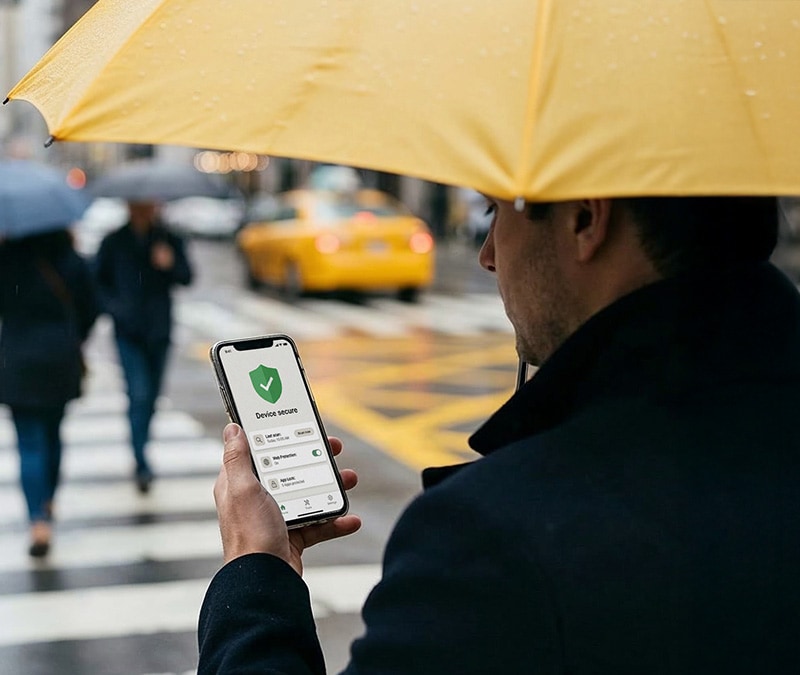PC or Mac: Which is more resistant to cyber threats?
Cyber criminals are not run-of-the-mill street hooligans. Assailants of online crimes are educated, tech-savvy, sophisticated individuals who dont care if you prefer PC to Mac or vice versa. There...

Cyber criminals are not run-of-the-mill street hooligans. Assailants of online crimes are educated, tech-savvy, sophisticated individuals who don’t care if you prefer PC to Mac or vice versa. There has been considerable debate in the tech arena regarding the security of one machine over the other. Are PCs more prone to cyber attacks? Is a Macbook really less vulnerable to online threats? The debate wages on.
For a long time Mac users enjoyed a period of peace—they felt impervious to threats, only to realize years later that the sophisticated hacker would eventually evolve to this platform. Back then it was a numbers game. PCs were more popular, with the number of Windows operating systems connecting to the web far surpassing those of Macintosh or Linux. The result was an influx of attacks targeted at PC users and the Windows operating system. However, the times are changing. Mac OS X’s market share is now at eight percent, almost double what it was seven years ago- and as a result, cybercriminals are taking notice and setting their sights on Apple.
Today’s digital landscape features a mix of users on a variety of devices supporting more software than has ever been available before. And unfortunately, we are no safer today than we were ten years ago.
Where Are the Risks?
Windows Vista and Windows 7 are still targeted by malware threats more often than any other operating systems. However, malware for Mac is estimated to rise as the iOS takes hold of more of the market (It’s a numbers game, remember?). We have observed a growing number of threats for Macs in the past two years. While the numbers are still relatively low in relation to Windows computers, they are still skewed as Windows has nabbed the majority of the market share by 91 percent. Attackers have realized that Apple users are just as lucrative of a payday, if not more than Windows users.
Both PCs and Macs offer a potentially securable machine. The problem isn’t so much with the platform; it’s a matter of users not taking the necessary precautions to guard their machines and operating systems.
Most people assume that Windows and iOS come equipped to handle random downloads from the Internet and have no problem running potentially buggy software. This is just not the case. Regardless of the machine, most users will willingly download a hazardous browser plug-in to gain access to something trivial online. Once that happens, it’s no longer a matter of machine security—at least not when it’s the user opening the floodgates.
Browser Security
One of the biggest issues faced by both Mac and PC users involves browser security. Internet Explorer and Safari have both proven problematic in this regard. Browser vulnerably comes through 3 channels: the browser itself, add-ons, and plug-ins, sometimes called extensions.
Free browser add-ons or plug-ins can enable browsers to play videos, music, or games using Java. Unfortunately, not all plug-ins and add-ons are safe, and some may contain harmful malware or viruses. The results of installing rouge plug-ins or add-ons can include identity theft, data loss, and financial loss.
How to Reduce Your Risk
The first thing a user can do to reduce her risk of cyber attacks, regardless of the operating system, is to install an Internet Security software suite, such as Norton Security (for both Mac and PC) on the machine. Even Macs can use the added protection these days. Consider the use of a host-based firewall to ensure your online activities are encrypted and not seen by online assailants. Additionally, you should always be cautious of browser plus-ins and add-ons. Don’t click on pop-ups or virus warnings; many of these windows are scams and use “scare tactics” to trick users into thinking you’ve already contracted a virus. When you click the link telling you to download the software to ‘cure’ the virus, you’re opening the door for a cyber attack.
When in doubt, shut it out. You’d be hard pressed to convince an avid Mac user to switch to a PC and visa versa. Fortunately, there are solutions out there for both machine types and operating systems.
If you can curb your social behavior online to reject bogus warnings and refrain from downloading illegitimate software, you’ll be in good shape against cyber threats on your computer of choice.

Don’t wait until a threat strikes.
Security threats and malware lurk on Windows PCs, Macs, and Android and iOS devices. If you use more than one device – like most of us do – you need an all-in-one security suite. Meet Norton Security Premium.
Enjoy peace of mind on every device you use with Norton Security Premium.
Editorial note: Our articles provide educational information for you. Our offerings may not cover or protect against every type of crime, fraud, or threat we write about. Our goal is to increase awareness about Cyber Safety. Please review complete Terms during enrollment or setup. Remember that no one can prevent all identity theft or cybercrime, and that LifeLock does not monitor all transactions at all businesses. The Norton and LifeLock brands are part of Gen Digital Inc.





Want more?
Follow us for all the latest news, tips, and updates.